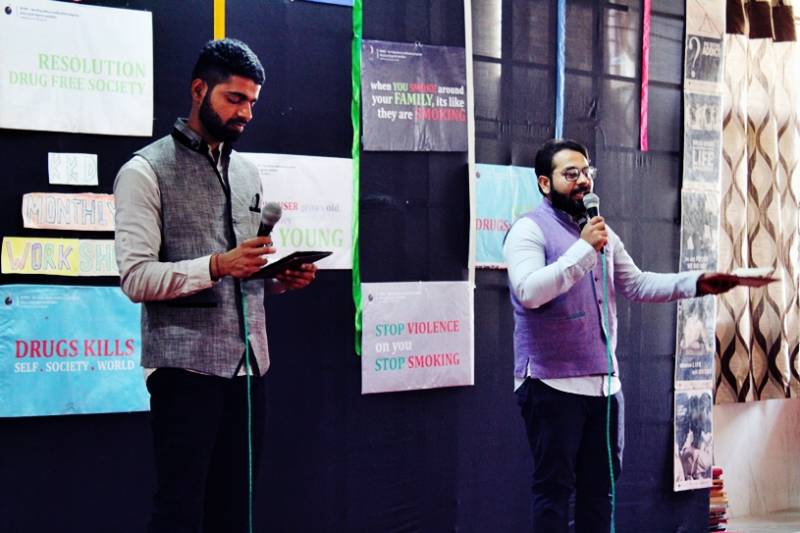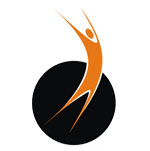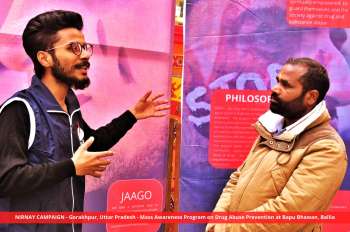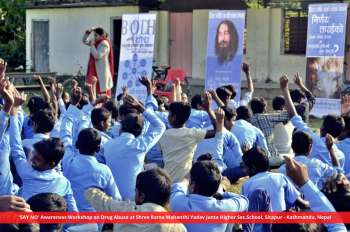The Drug Abuse Eradication Program, one of the socio-sensitizing initiatives of Divya Jyoti Jagrati Sansthan founded/mentored by His Holiness Ashutosh Maharaj ji organized an awareness based prevention education workshop at Karkardooma, Delhi for more than 80 young residents/delegates of East Delhi. The aim of this workshop was based upon the discussion on the proverbial theme of 'prevention is better than cure' in which the importance and necessity of ‘balancing’ of life with regard to decision making relating to various kinds of occupational and personal hazards of life was logistically and lucidly highlighted.
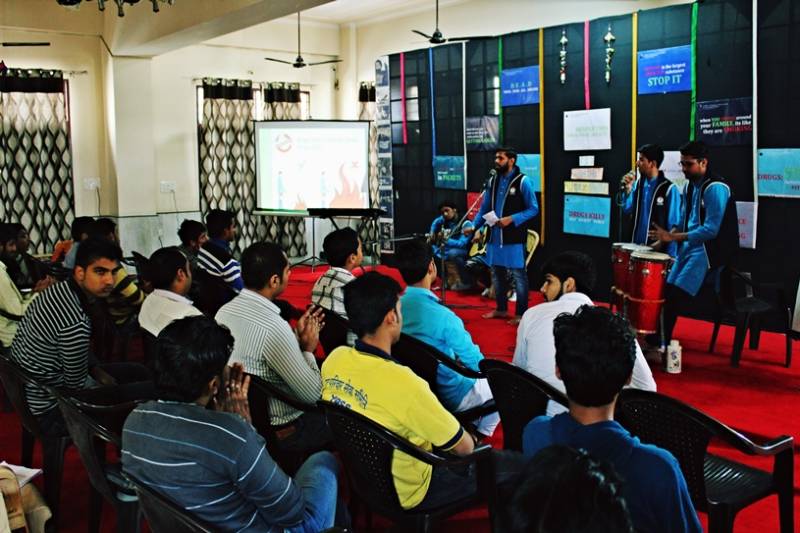
With the intention of becoming stress free and with the perception of having taken the right decision, often it is factually observed how a strata of youth in majority easily gets dragged towards ephemeral attractions of smoking, alcoholism or hard core drugs like heroine, LSD etc. On the other hand, socio-psychological studies state how continuous intake of any narcotic substance disturbs the natural and physiological mechanism as it is mentioned by “Drugs of abuse change the structure of the brain,” says Dr. Robert Swift, professor of psychiatry and human behaviour at Brown University. “It’s a brain disease, not a weakness of character.”
Dr. John Femino, an addiction medicine specialist and medical director of Meadow’s Edge Recovery Center, in North Kingstown, puts it this way: “I’ve never met an addict that planned on being one. Their brain gets co-opted.” The drugs’ positive effects can lead people to keep taking them, and that repeated drug use distorts two brain systems. The first, the limbic system, bestows pleasure: it makes things such as eating and sex enjoyable to ensure survival of the species. Counterbalancing this system is the frontal cortex, the cop in charge of judgment and decision-making. There is a constant give-and-take between these two systems, between impulse and self-control. Your limbic system makes sure you don’t starve; your frontal cortex dissuades you from that second piece of cake. Drug use primes the limbic system and saps the frontal cortex. That means the urge for drugs strengthens just as one’s ability to control that urge becomes impaired, or as Femino puts it, drugs are “turbocharging your engine and weakening your brakes.”
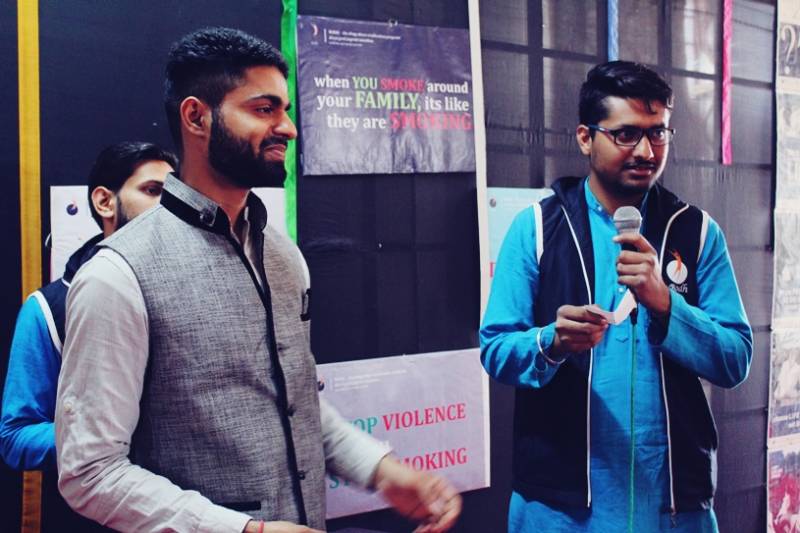
Eventually, the urge to consume drugs more and more becomes so powerful that “a person will give up everything that’s important to them as a human being -- their relationships, their job, their health -- because it changes your brain and it alters your thinking,” Swift says. “You literally do lose yourself.” Drug use doesn’t do this to most people, only those with a certain type of brain anatomy. The vulnerability to addiction is caused by a variety of factors: genes, social circumstances and traumatic experiences, such as childhood abuse or military combat.
DJJS is regularly working under its various endeavours for the betterment of the society. To know more and be a part of the program you can contact at www.djjs.org/bodh or follow us on www.facebook.com/djjsrehab.


